March 24 stands as one of history’s most eventful days, witnessing the rise and fall of empires, groundbreaking discoveries, and moments that shaped our modern world across centuries of human achievement.
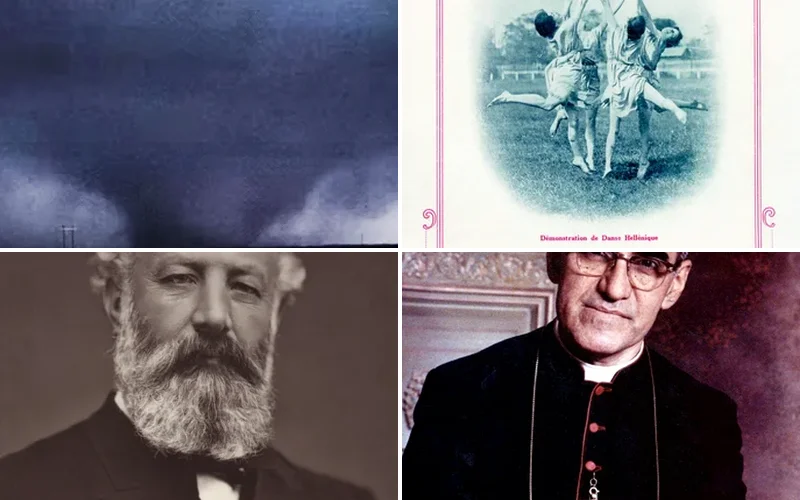
Politics and Government Events on March 24
1934 – Tydings-McDuffie Act Passed by US Congress
The United States Congress passed the Tydings-McDuffie Act, granting the Philippines self-governing commonwealth status. This landmark legislation established a ten-year transition period toward full independence.
The act marked America’s first major step toward decolonization in the Pacific. Filipino leaders celebrated this crucial milestone in their nation’s journey toward sovereignty.
1976 – Argentine Military Coup Overthrows Isabel Perón
Argentine armed forces seized power from President Isabel Perón in a swift military coup. The generals initiated what they called the National Reorganization Process, beginning seven years of military dictatorship.
The takeover ended civilian rule and ushered in one of Argentina’s darkest periods. Military leaders promised to restore order but instead implemented brutal authoritarian policies.
1972 – Direct Rule Imposed on Northern Ireland
The British government under Edward Heath imposed direct rule over Northern Ireland, suspending the regional parliament. This decisive action came amid escalating violence and political deadlock during the Troubles.
The move transferred all governmental authority from Belfast to London. British ministers now directly controlled Northern Ireland’s domestic affairs for the first time in decades.
2008 – Bhutan Becomes Democratic Constitutional Monarchy
Bhutan conducted its first-ever general election, officially transforming from absolute monarchy to constitutional democracy. Citizens voted peacefully in this historic transition to representative government.
The Himalayan kingdom’s peaceful democratization surprised international observers. King Jigme Khesar Namgyel Wangchuck voluntarily ceded absolute power to elected representatives.
1982 – Military Coup in Bangladesh

Lieutenant General Hussain Muhammad Ershad led a bloodless coup against Bangladeshi President Abdus Sattar. The military suspended the constitution and imposed martial law across the young nation.
Ershad justified the takeover by citing governmental corruption and inefficiency. The coup marked another setback for democratic governance in South Asia.
Military and Naval History on March 24
1944 – The Great Escape from Stalag Luft III
Seventy-six Allied prisoners of war began their daring breakout from German camp Stalag Luft III. This meticulously planned escape operation became one of World War II’s most famous prison breaks.
The prisoners had spent months digging tunnels and forging documents for their escape attempt. Their story later inspired the classic Hollywood film “The Great Escape.”
1999 – NATO Begins Bombing Campaign Against Yugoslavia
NATO launched its first-ever attack on a sovereign nation by bombing Yugoslavia without UN Security Council approval. The alliance justified military action as necessary to stop ethnic cleansing in Kosovo.
The controversial decision marked NATO’s transformation from defensive to offensive military alliance. Yugoslav forces had been conducting systematic attacks against ethnic Albanian civilians.
1927 – Nanking Incident Sparks International Crisis
Foreign warships bombarded Nanjing, China, to protect international citizens during violent anti-foreign demonstrations. The incident escalated tensions between China and Western powers during the Chinese Civil War.
Chinese nationalist forces had attacked foreign consulates and businesses throughout the city. The bombardment killed Chinese civilians and inflamed anti-Western sentiment across China.
1944 – Nazi Massacre in Rome
German troops executed 335 Italian civilians in Rome’s Ardeatine Caves in retaliation for a resistance attack. The massacre represented one of Nazi Germany’s most brutal reprisals against civilian populations.
The killings shocked Romans and strengthened Italian resistance movements throughout the country. German commanders ordered the executions to terrorize the local population into submission.
Science and Discovery Milestones on March 24
1993 – Comet Shoemaker-Levy 9 Discovered

Carolyn and Eugene Shoemaker, along with David Levy, discovered Comet Shoemaker-Levy 9 at California’s Palomar Observatory. This fragmented comet would later provide unprecedented scientific observations when it collided with Jupiter.
The discovery revolutionized planetary science by offering the first opportunity to observe a major celestial impact. Scientists worldwide prepared telescopes to study the comet’s eventual collision with Jupiter in 1994.
1992 – Space Shuttle Atlantis Launches on STS-45

Space Shuttle Atlantis launched on mission STS-45, carrying the Atmospheric Laboratory for Applications and Science (ATLAS-1). The mission conducted extensive atmospheric and solar research during its nine-day orbital flight.
Astronauts performed numerous experiments studying Earth’s atmosphere and solar radiation effects. The mission contributed valuable data about ozone depletion and climate change research.
1998 – First Computer-Assisted Bone Surgery Performed
Dr. Rüdiger Marmulla performed the world’s first computer-assisted bone segment navigation surgery at the University of Regensburg, Germany. This groundbreaking procedure revolutionized orthopedic and reconstructive surgery techniques.
The computer-guided surgery provided unprecedented precision in bone reconstruction procedures. Medical professionals worldwide adopted this technology for complex facial and skeletal surgeries.
Cultural and Arts Events on March 24
1921 – First Women’s Olympiad Begins

The inaugural Women’s Olympiad commenced in Monte Carlo, marking the first international women’s sports competition. Female athletes from multiple nations competed in various athletic events despite limited opportunities in traditional Olympic Games.
The event challenged male-dominated sporting culture and advanced women’s athletic participation globally. Organizers promoted gender equality in sports decades before the modern Olympic movement embraced female competitors.
1989 – Exxon Valdez Oil Spill Devastates Alaska
The oil tanker Exxon Valdez ran aground in Prince William Sound, Alaska, spilling 240,000 barrels of crude oil. This environmental disaster became America’s worst oil spill and transformed environmental protection policies.
The spill contaminated over 1,300 miles of pristine Alaskan coastline and killed countless marine animals. Environmental groups mobilized massive cleanup efforts and pushed for stronger maritime safety regulations.
2018 – March for Our Lives Protests Demand Gun Control
Students across the United States organized massive March for Our Lives demonstrations demanding stricter gun control legislation. The protests responded to the devastating Stoneman Douglas High School shooting in Parkland, Florida.
Hundreds of thousands of young Americans participated in coordinated rallies in Washington D.C. and cities nationwide. The student-led movement energized gun control advocacy and influenced subsequent political campaigns.
Religious and Social Events on March 24
1980 – Archbishop Óscar Romero Assassinated
El Salvadoran Archbishop Óscar Romero was assassinated while celebrating Mass in San Salvador. The prominent human rights advocate had spoken out against government oppression and social injustice.
Romero’s murder shocked the international community and galvanized opposition to El Salvador’s military government. The Catholic Church later canonized him as a saint and martyr for social justice.
1946 – British Cabinet Mission Arrives in India
A British Cabinet Mission arrived in India to negotiate the transfer of power from the British Raj to Indian leadership. The mission attempted to find a constitutional solution for Indian independence while addressing Hindu-Muslim tensions.
The delegation’s discussions with Indian leaders shaped the eventual partition of India and Pakistan. Their negotiations established the framework for Britain’s withdrawal from the subcontinent.
1961 – Quebec French Language Board Established

The Quebec Board of the French Language was established to protect and promote French language rights in Quebec. This institution became central to Quebec’s cultural identity and language preservation efforts.
The board implemented policies requiring French language use in business, education, and government. These measures strengthened Quebec’s distinct francophone culture within English-speaking Canada.
Business and Economic Events on March 24
1986 – Loscoe Gas Explosion Leads to Safety Reforms
The Loscoe gas explosion in England killed several people and led to comprehensive UK reforms regarding landfill gas migration. The tragedy exposed dangerous gaps in waste management safety protocols.
Parliament passed new legislation requiring gas protection measures on all landfill sites. The reforms prevented similar disasters and established international standards for waste disposal safety.
1999 – Mont Blanc Tunnel Fire Kills 38 People

A lorry carrying margarine and flour caught fire inside the Mont Blanc Tunnel, creating a devastating inferno that killed 38 people. The disaster highlighted serious safety deficiencies in major European transportation infrastructure.
The tunnel fire led to comprehensive safety reforms for major European tunnels. Authorities installed improved ventilation systems, emergency exits, and firefighting equipment throughout the tunnel network.
2003 – Arab League Condemns Iraq Invasion
The Arab League voted 21-1 demanding an immediate end to the 2003 invasion of Iraq. The resolution demonstrated widespread Arab opposition to the American-led military intervention in the region.
Only Kuwait supported the invasion, while other Arab nations condemned the military action. The vote revealed deep divisions between Arab governments and Western powers over Middle Eastern policy.
Transportation and Infrastructure on March 24
2019 – Jakarta MRT System Begins Operation
Jakarta’s Mass Rapid Transit system began passenger service, providing the Indonesian capital with its first modern rapid transit network. The long-awaited system promised to reduce traffic congestion in one of Asia’s most crowded cities.
The MRT connected southern Jakarta suburbs to the central business district efficiently. Officials planned extensive network expansion to serve Jakarta’s ten million residents better.
2015 – Germanwings Flight 9525 Crashes in French Alps

Germanwings Flight 9525 crashed in the French Alps, killing all 150 passengers and crew aboard. Investigators later determined the co-pilot deliberately crashed the aircraft in a murder-suicide.
The tragedy shocked the aviation industry and led to enhanced cockpit security protocols. Airlines worldwide implemented new policies requiring two crew members in cockpits at all times.
1998 – Devastating Tornado Strikes Indian Town

A powerful tornado swept through Dantan, India, killing 250 people and injuring 3,000 others. The natural disaster devastated the rural community and highlighted India’s vulnerability to extreme weather events.
The tornado destroyed hundreds of homes and left thousands of families homeless. International relief organizations provided emergency assistance to survivors and began long-term reconstruction efforts.
Sports and Recreation on March 24
1998 – School Shooting at Westside Middle School
Mitchell Johnson and Andrew Golden, aged 11 and 13, opened fire at Westside Middle School in Jonesboro, Arkansas, killing five people and wounding ten others. The tragedy marked one of America’s first major school shootings involving elementary-age perpetrators.
The shooting shocked the nation and sparked intense debates about youth violence and gun access. Schools nationwide implemented enhanced security measures and anti-violence programs following the incident.
1990 – Indian Forces Leave Sri Lanka
The last ship carrying Indian Peace Keeping Forces departed Sri Lanka, ending India’s controversial military intervention in the Sri Lankan Civil War. The withdrawal marked the conclusion of a three-year peacekeeping mission that had become increasingly unpopular.
Indian forces had initially arrived to help implement a peace agreement between the Sri Lankan government and Tamil militants. The intervention ultimately failed to resolve the conflict and strained Indo-Sri Lankan relations.
2023 – Powerful Tornado Devastates Mississippi Towns

An EF4 tornado struck Rolling Fork and Silver City, Mississippi, causing widespread destruction and multiple fatalities. The powerful storm destroyed hundreds of homes and businesses in the rural Delta communities.
The tornado’s 170-mph winds completely leveled entire neighborhoods and left thousands without power. Emergency responders coordinated massive rescue and recovery operations throughout the affected areas.
Notable Births on March 24
1901 – Ub Iwerks, Animation Pioneer
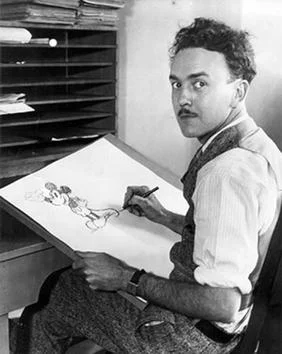
American animator Ub Iwerks was born, destined to co-create Mickey Mouse and revolutionize animation technology. His artistic genius and technical innovations shaped the early Disney studio’s creative direction.
Iwerks developed groundbreaking animation techniques that brought characters to life with unprecedented personality and movement. His contributions to animation artistry influenced generations of animators and filmmakers worldwide.
1911 – Joseph Barbera, Animation Legend

American animator Joseph Barbera was born, later co-founding Hanna-Barbera Productions and creating beloved cartoon characters. His creative partnership with William Hanna produced iconic animated series for television audiences.
Barbera’s studios created timeless characters including the Flintstones, Yogi Bear, and Scooby-Doo. His innovative approach to television animation entertainment influenced popular culture for decades.
1934 – Steve McQueen, Hollywood Icon

American actor Steve McQueen was born, becoming one of Hollywood’s most charismatic leading men. His rebellious screen persona and natural acting ability made him a cultural icon of the 1960s and 1970s.
McQueen starred in classic films including “Bullitt,” “The Great Escape,” and “The Magnificent Seven.” His performances defined the anti-hero archetype and influenced countless actors who followed.
1949 – Nick Lowe, Musical Innovator

English singer-songwriter Nick Lowe was born, becoming a pivotal figure in punk and new wave music. His songwriting talents and production work shaped the sound of British rock music.
Lowe wrote classic songs for Elvis Costello and other artists while maintaining his own successful recording career. His witty lyrics and melodic sensibilities influenced alternative rock music development.
1976 – Peyton Manning, NFL Legend

American football player Peyton Manning was born, destined to become one of the NFL’s greatest quarterbacks. His exceptional passing skills and football intelligence revolutionized the quarterback position.
Manning won five NFL MVP awards and two Super Bowl championships during his illustrious career. His preparation methods and leadership qualities set new standards for professional quarterbacks.
1960 – Nena, German Pop Star

German singer Nena was born, achieving international fame with the hit song “99 Luftballons.” Her energetic performance style and distinctive voice made her one of Germany’s most successful pop exports.
Nena’s anti-war anthem topped charts worldwide and became a Cold War era cultural phenomenon. Her music career spanned decades and influenced European pop music development.
1909 – Clyde Barrow, Notorious Outlaw
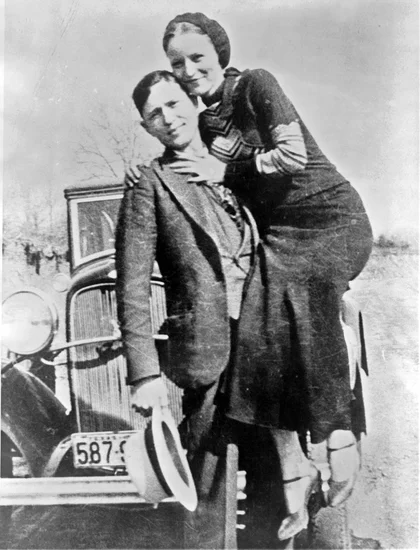
American criminal Clyde Barrow was born, later becoming half of the infamous Bonnie and Clyde crime duo. His criminal partnership with Bonnie Parker captured national attention during the Great Depression.
Barrow’s bank robberies and violent crimes across the American Southwest made him a folk hero to some and a dangerous criminal to others. His story inspired numerous films and books about Depression-era outlaws.
Notable Deaths on March 24
1905 – Jules Verne, Science Fiction Pioneer
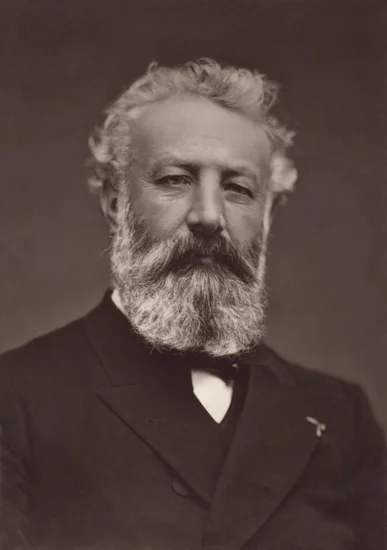
French novelist Jules Verne died, leaving behind a literary legacy that helped establish science fiction as a legitimate genre. His imaginative novels predicted many technological innovations decades before their actual invention.
Verne’s works including “Twenty Thousand Leagues Under the Sea” and “Around the World in Eighty Days” inspired generations of explorers and inventors. His visionary storytelling influenced both literature and scientific advancement.
1980 – Óscar Romero, Martyred Archbishop
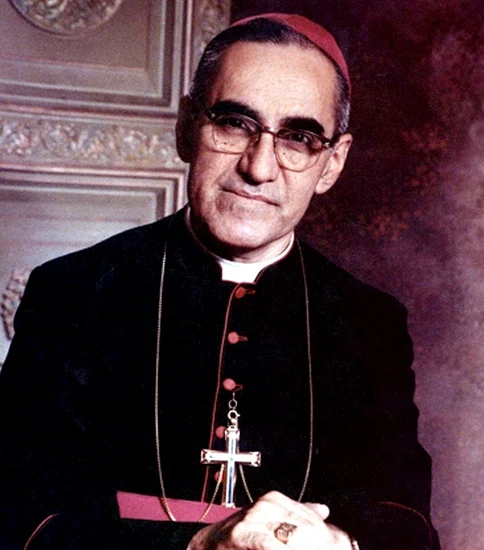
Salvadoran Archbishop Óscar Romero died after being assassinated while celebrating Mass in San Salvador. His murder shocked the international community and made him a symbol of liberation theology and social justice.
Romero had courageously spoken out against government oppression and human rights abuses in El Salvador. The Catholic Church canonized him as a saint, recognizing his ultimate sacrifice for justice.
1976 – Bernard Montgomery, Military Commander

British Field Marshal Bernard Montgomery died, ending the life of one of World War II’s most successful military commanders. His leadership during the North African campaign helped turn the tide against German forces.
Montgomery’s victory at the Battle of El Alamein marked a crucial turning point in the war against Nazi Germany. His tactical brilliance and inspirational leadership earned him lasting military fame.
1946 – Alexander Alekhine, Chess Grandmaster

Russian chess player Alexander Alekhine died while holding the World Chess Championship title. His brilliant tactical play and deep understanding of chess strategy revolutionized competitive chess.
Alekhine remained the only player to die while holding the world championship, cementing his legendary status. His chess innovations and analytical writings influenced chess theory for generations.
2016 – Johan Cruyff, Football Revolutionary

Dutch footballer Johan Cruyff died, ending the life of one of football’s most innovative players and coaches. His “Total Football” philosophy revolutionized the sport and influenced modern playing styles.
Cruyff’s playing career included legendary performances for Ajax and Barcelona, where he won numerous championships. His coaching methods transformed Barcelona into a global football powerhouse.
2020 – Manu Dibango, Musical Pioneer

Cameroonian musician Manu Dibango died, losing one of Africa’s most influential jazz and world music artists. His fusion of African rhythms with jazz and funk created a distinctive sound that influenced global music.
Dibango’s song “Soul Makossa” became an international hit and influenced the development of hip-hop music. His saxophone playing and musical innovation bridged African and Western musical traditions.
Holidays and Observances on March 24
World Tuberculosis Day

World Tuberculosis Day raises global awareness about tuberculosis, one of humanity’s deadliest infectious diseases. The World Health Organization coordinates international efforts to combat TB transmission and improve treatment access.
Healthcare organizations worldwide use this day to educate communities about TB prevention and treatment. The observance highlights the need for continued research and public health investment.
International Day for the Right to Truth
The International Day for the Right to Truth Concerning Gross Human Rights Violations and for the Dignity of Victims honors those who suffered human rights abuses. The United Nations established this observance to promote truth-seeking and accountability.
The day commemorates Archbishop Óscar Romero’s assassination and his advocacy for human rights. Organizations worldwide organize events promoting justice and truth-telling about historical atrocities.
Day of Remembrance for Truth and Justice in Argentina

Argentina observes the Day of Remembrance for Truth and Justice, commemorating victims of the military dictatorship that began on this date in 1976. The national holiday honors those who disappeared during the military regime.
Memorial services and human rights demonstrations take place throughout Argentina. The observance reinforces the nation’s commitment to democracy and human rights protection.
